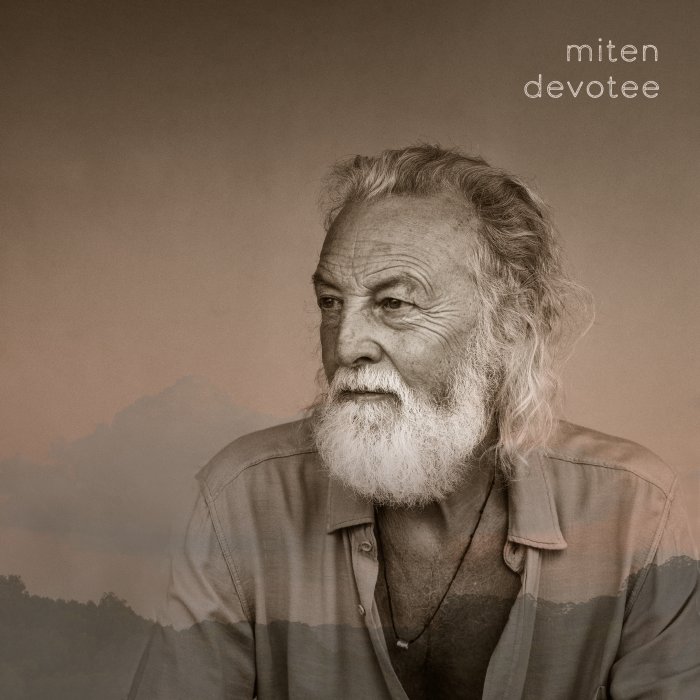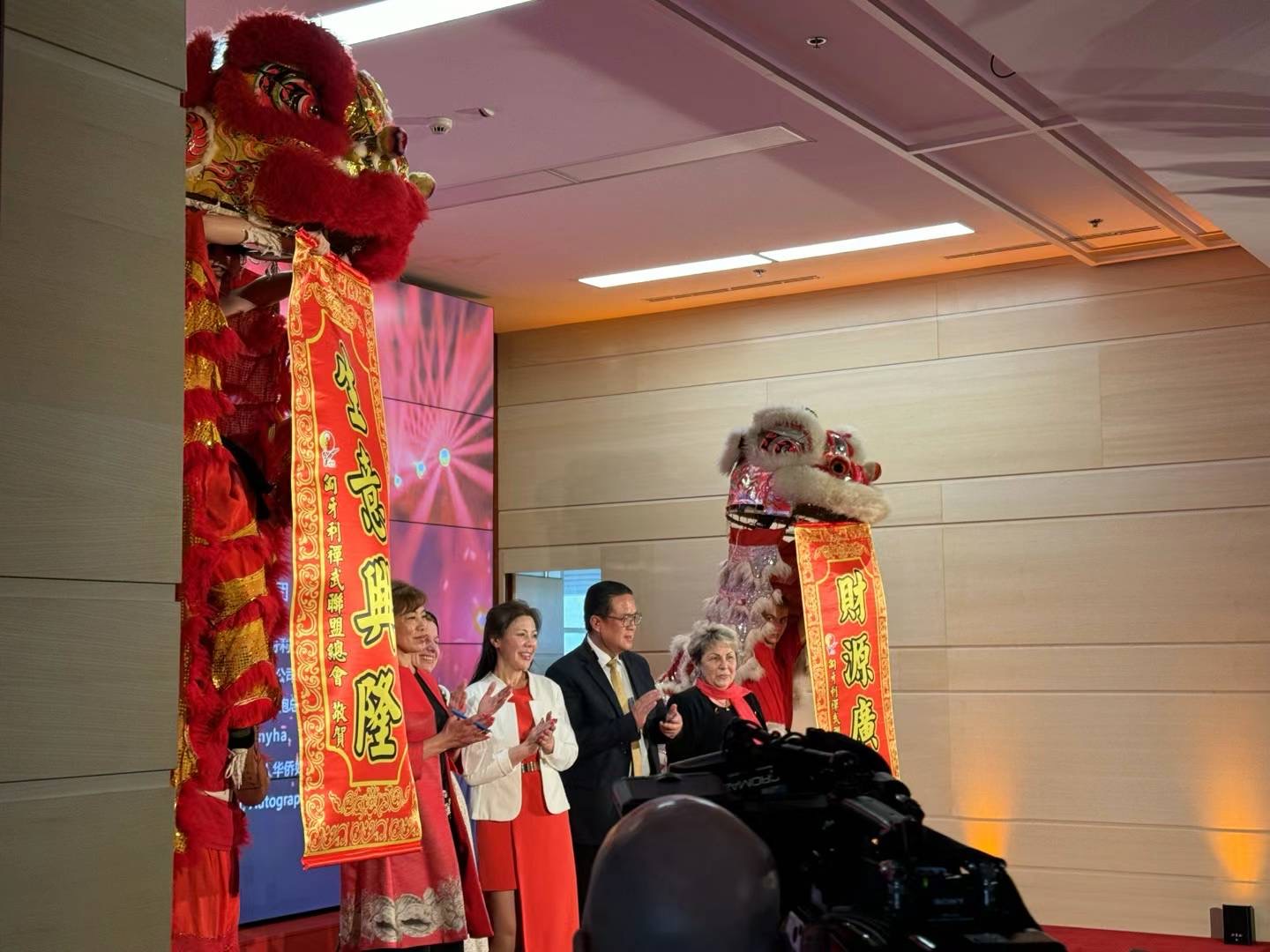On the Wings of Mantra: in Conversation With Miten

Often called mantra music superstars, Deva Premal and Miten held another of their sacred music gatherings in Budapest on October 6. I caught up with Miten, who has just released an album called “Devotee”, on the morning of the concert. He’s a softly spoken, warm and mellow character.
Miten Devotee
Born Andy Desmond just outside London in 1947, Miten was a reasonably well-established singer songwriter in the 1970s. He made two albums as part of folk-rock duo Gothic Horizon and an eponymous solo album in 1976.
Although Miten now describes the music he made before as “uncooked me, without life experience”, his profile was sufficiently high to win him support slots on tours by Randy Newman, Hall and Oates, Ry Cooder and The Kinks among others. In 1978, he was the special guest of Fleetwood Mac on their UK tour in support of their multi-million selling “Rumours” album.
But Desmond was thoroughly disillusioned with the world of rock and roll and the way he was living. In 1980, he was initiated into “sannyas” by Indian guru Osho and given the name Prabhu Miten or “Friend of God”. Miten met Deva Premal at Osho’s ashram in Pune in 1990 and the couple have been together ever since.
Today, they tour continually. Their record company, Prabhu Music, reports combined CD sales of more than one million. Miten’s most streamed track on Spotify is “So Much Magnificence” with 7.4 million streams. “Gayatri Mantra”, recorded with Deva Premal, has been streamed 14 million times.
Father’s Ambitions
I began by asking Miten how he first got into music. “My whole childhood was about football,” he told me.
“I was good enough to have trials with big teams. Then The Beatles came along. I was 14 and football went out the window. I started growing my hair and listening to loud music. It was the first time I’d stepped away from my father’s ambitions for me. But he bought me my first guitar. He got it. Music and the whole wave I was part of, exploring new possibilities and perspectives, was very creative but it also took me into drugs. That’s where I remained until I walked out on my wife and son.”
What about Osho? “In 1979 or so I had this kind of breakdown. But at the right time came the guru, through a book called “No Water, No Moon”, a collection of Zen parables Osho had commented on. I joined an Osho community in London. Suddenly, I heard Sufi music. I was around adults all singing together, happy and making love, strong in our respect for each other. I had the experience of freedom coming out of chaos. That’s where the music comes from. Out of silence, nothingness, being comfortable in one’s self.”
“Devotee” is a lovely, warm and relaxed album. Doesn’t Miten ever get angry? “There’s nothing left there really. The passion is somewhere else. It’s in song like ‘Bring Me Your Love’ on the new album.”
While it’s very much in the spirit of previous Deva Premal and Miten albums, “Devotee” has a different kind of vibe to it, for me. There’s a certain kind of organic warmth and a feeling of space. Miten’s voice, often not much more than a whisper or murmur, draws the listener in. Songs like “Into Your Hands”, adapted from what Jesus is supposed to have said before he passed on, have a mesmeric quality without being mantra. There’s also a lovely version of that old chestnut, Bob Marley’s “Rivers of Babylon”.
“This album is the most organic experience I’ve had making music. We were in Byron Bay, Australia and I decided there was something about the acoustic guitar that wasn’t compatible with the musicians I’d invited in. When it was just Deva, Manose and me, acoustic was great because I could support them,” Miten said.
Evolved Rock
“But these new guys were very evolved rock, almost jazz, musicians and I felt acoustic wouldn’t be right. I heard a young boy playing a Stratocaster at the farmers’ market and thought ‘I’ll get myself a Strat’. The Strat gave me space the acoustic didn’t so the songs started to have a spacious feeling. We cut the album almost live. Now, when we’re performing, I’m having fun getting to know my new electric girlfriend.”
When I saw Deva Premal and Miten’s concert in Budapest last year, he looked fragile. As he was recovering from heart surgery, this wasn’t surprising. This time around, it was clear that Miten was in good health thoroughly enjoying himself.
“We play every other night,” he told me earlier. “It takes up most of my life. And people coming now know what they’re going to get. There’s something magical about the voice and sitting in silence. If you’re singing together, you’re breathing together, without realizing it. And then you’re singing Sanskrit sound healing mantras that are really potent. It’s alive. To this day, it gives me goosebumps.”
Miten has the air of someone who has found his place in life. He agrees. “It feels like we’re part of a growing community. And the response to our music is beautiful. It’s not unusual for us to get Facebook messages and emails from people telling us that a person is listening to our music as they prepare to leave their body or for someone to come up to us at concerts with a baby in their arms and tell us the child was conceived or born to our music. That’s my world and it’s the best thing I can do. When it’s time for me to go, I hope I fall off my chair in the middle of the Gayatri Mantra.”
“Devotee” will be available to buy from devapremalmiten.com or stream at Spotify or iTunes from October 25.
SUPPORT THE BUDAPEST BUSINESS JOURNAL
Producing journalism that is worthy of the name is a costly business. For 27 years, the publishers, editors and reporters of the Budapest Business Journal have striven to bring you business news that works, information that you can trust, that is factual, accurate and presented without fear or favor.
Newspaper organizations across the globe have struggled to find a business model that allows them to continue to excel, without compromising their ability to perform. Most recently, some have experimented with the idea of involving their most important stakeholders, their readers.
We would like to offer that same opportunity to our readers. We would like to invite you to help us deliver the quality business journalism you require. Hit our Support the BBJ button and you can choose the how much and how often you send us your contributions.






.png)


